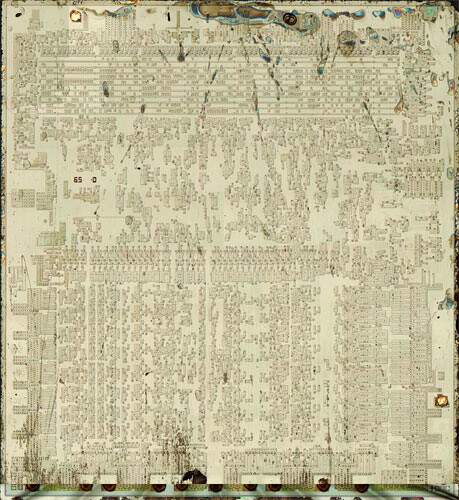Slogans for 2014: “Hope is the mother of fools” (Polish saying) — Search for Yourself — “Views stated in this email are not my own and cannot be used against me” (footer) — The No-Excuses Truth to Understanding Anarchism (book title) — Tame Your Junk (three-day course) — “Hardwired for Nonsense” — “Make the most hegemoney with a career in Gramscience” (Ian Bogost) — “Why [popular technology] is [unexpected opinion]” (4chan) — Encountering Algorithmic Flags on Content — “not just anti-aesthetic, but anaesthetic” — “you restored our world” — “Why I stopped coding to focus more on my blog,” with 39,123 comments — “Please note: I am not checking my spam folder anymore. If your message is not answered soon, please rephrase and resend.” — Happy Dark Ages — “I have seen dancing soldiers on Facebook” — “Modest and quiet cryptographers have superior ethics over word artists” (John Young) — Yiddish expression: “Man plans, and God laughs.” — Petition to Google shareholders: “Be Sociable, Share!” — “You sound like the drunk guy who won’t put down his bottle as though it’s stuck in his hand all the while calling alcohol bad and terrible” — “We don’t need your aid, please fund our budget deficit” (African saying).
Enlightenment not only promises new knowledge, it also shatters mythologies. The Snowden revelations in June 2013 mark the symbolic closure of the “new media” era. The NSA scandal has taken away the last remains of cyber-naivety and lifted the “internet issue” to the level of world politics. The integration of cybernetics into all aspects of life is a fact. The values of the internet generation have been dashed to pieces: decentralization, peer-to-peer, rhizomes, networks. Everything you have ever clicked on can and will be used against you. In 2014, we’ve come full circle and returned to a world before 1984. That was not only Orwell’s year, but also the moment Apple hit the mediascape with the personal computer. Until 1984, a small conglomerate of multinationals such as IBM, Honeywell-Bull, and GE defined the public imagination of computers with their sterile, corporate mainframes that processed punch cards. Until then, computers had been used by large bureaucracies to count and control populations and had not yet shaken off their military origins. Now, thirty years later, the computer is once again the perfect technical instrument of a cold, military security apparatus that is out to allocate, identify, select—and ultimately destroy—the Other. The NSA, with the active support of Google, Facebook, Microsoft, and allied secret services, has achieved “total awareness.” Precisely at the moment when the PC is disappearing from our desks, large and invisible data centers take their place in the collective techno-imaginary.
The Turkish-American web sociologist Zeynep Tufekci reflects on the new state of affairs:
Resistance and surveillance: The design of today’s digital tools makes the two inseparable. And how to think about this is a real challenge. It’s said that generals always fight the last war. If so, we’re like those generals. Our understanding of the dangers of surveillance is filtered by our thinking about previous threats to our freedoms.1
She calls on us to update our nightmares. Let’s take this call seriously. In what ways can we still read our terrifying dreams with (Freudian) tools based on ancient Greek myths? In the age of smartphones, archetypal layers have been rewired and have mutated into a semi-collective techno-subconscious. We never dream alone. The digital is being pushed into the realm of the subliminal. The subject-as-user, the one who takes selfies, can indeed no longer productively distinguish between real and virtual, here and there, day and night. What is citizen empowerment in the age of the driverless car?
An Apple advertisement directly cites George Orwell’s Big Brother from his book 1984. The ad was aired during the Superbowl, 1984.
The University of Chicago Press recently released the third volume of its Trios series. Excommunication contains three extended essays written on the brink of the Snowden affair by three New York-based new media scholars—theory royalty who belong to the digital nineties generation: Alex Galloway, Eugene Thacker, and McKenzie Wark. The “three inquiries in media and mediation” open with the widely shared discontent that “new media” has become an empty signifier: “One of the things the trio of us share is a desire to cease adding ‘new media’ to existing things.”2 As the nineties slogan says: new media are tired, not wired. Or, to put it in eighties theory jargon: new media have moved from the schizoid revolutionary pole to the paranoiac, reactionary pole. Fashion over, next hype? If so, how do we deal with the Media Question, knowing that it is over but hasn’t gone away? To put it in the German context, what’s media theory after Friedrich Kittler? This question has been with us for some time. It is not enough that the historical wing—media archaeology—is doing well. Can we speak of a next generation that grew up under postmodernism, matured in the post-Cold War era of digital networks, and is currently taking over? Taking over what? There is a lot to say for the thesis that the height of speculative media theory was in the 1980s. The rest has been implementation—a boring and predictable collision with the existing political economy of global capitalism. This leaves us with the question of the mandate and scope of today’s media theory—if there is anything left. Are you ready to hand over the “new media” remains to the sociologists, museum curators, art historians, and other humanities officials? Can we perhaps stage a more imaginative “act of disappearance”? Are we ready to disguise ourselves amidst the new normality?


There are many ways to read Excommunication. One way would be to see this trio as a possible trend. Are new media theorists ready to become the next generation of public intellectuals following the example of Evgeny Morozov? It is hard to speak of an “emerging” New York School of Media Theory. It would be cool, but that’s not really what’s happening. What ingredients do we need in order to speak of a school? A program? Large quantities of research money? Institutional power? Influential academic positions, such as chairs? None of these seem to be present now. There are—not yet—distributed schools. Instead of endlessly comparing New York to LA, London, Paris, or Berlin as part of the city marketing logic, it makes more sense to return to the eighteenth-century model of philosophy as correspondence—through email lists, forums, blogs, Twitter. Pick your platform and start to insert the ideas of this print collaboration into the digital domain.
Is it the task of media (theory) to explain the world? The New York Three seem to have given up on this idea. Not only do they have doubts about the very possibility of communicating, there is also a growing uncertainty that theory can unfold the truth about our technological objects and processes. What does it mean in the context of “new media” that hermeneutics is, as Alex Galloway writes, in crisis? “Why plumb the recesses of the human mind, when the neurological sciences can determine what people think? Why try to interpret a painting when what really matters is the price it demands at auction?”3
As was noted in the 1990s, most media theory had been speculative in nature and projected its concepts into the future in the hope of cashing out at some stage. Already two decades ago, theory was incapable of understanding chips, computer code, and related interfaces (with the odd exception of Friedrich Kittler and a few others). The inability of theory to take apart the prime drivers of our civilization has caused a self-marginalization of the arts and humanities.
So what if we’ve lost our faith in media’s future, and we are left to our devices in the cold storage of Big Data? The contrast with 1980s film analysis, dominated by semiotics, postmodern philosophy, and psychoanalysis, couldn’t be greater. New media was, and still is, speculative and not hermeneutic. This is precisely because it has become so difficult to lay out the object of study, to put computer code, network architectures, user interfaces, and so forth, on the dissection table and spread them out in order to be able to read the material, with the aim of pouring out details that would reveal the bigger picture. The Will to Exegesis might still be there, but the black box cannot be dissected. This is the real hermeneutics crisis. This is the case in part because theorists have not learned to code, and also in part because the objects of study are simply not available (think of all the corporate algorithms).
A narrative reconstruction of a deeper meaning is hard to pull off in the digital media age, not least because in this McLuhan era, no one walks into the trap of content analysis. The message of the medium is its underlying structure, and both Google and Facebook are perfect examples of this law.


This is the background of the Greek turn in New York media theory, where the internet gets interpreted through comparisons to Hermes, Iris, and Fury (as well as through fashionable channels such as Badiou, Laruelle, Nancy, and others). As Wark summarizes: “Hermes stands for the hermeneutics of interpretation, Iris for the iridescence of immediacy, and the Furies for the swarm of the distributed network.”4
Thus Excommunication takes the liberty of stepping back from the political everyday of the Snowden scandals to turn to a highly coded language that uses Greek mythological names to speak to the revolutionary few. According to Leo Strauss, persecution gives rise to a peculiar type of literature “addressed … to trustworthy and intelligent readers only.”5 Is this the form and address that Wark, Galloway, and Thacker have in mind? Are they under surveillance and in danger? Do they encrypt their conversations in order to protect themselves from both the NSA and the constant barrage of banalities on Twitter and Facebook? Who knows. Suppression of independent thought through self-censorship has a long history, as Strauss explains. Could we call it a voluntary act of self-marginalization? Or rather, a desire to be accepted by established philosophers? Is it the overflow of social media that urged the authors to “combine understanding with caution,” or is it ostracism? Whatever the case, the question remains as to what discourse can revitalize freedom of speech in a digital age. I don’t want to read between the lines. With so much at stake, instead of dragging this text into a pool of misinterpretations, I propose to open up the debate. Can we say that media theory as such is regarded as suspect by the majority? Because of the growing gap between computer use (and similar devices) and the stagnation of new media theory coming from academia, we need to take this question seriously.
The informal critique from German circles that Excommunication does not move beyond the level of a German high school essay is a statement that I cannot verify. I have missed Michel Serres’s impressive work on Hermes. Ulysses does not run through my Dutch-Anglo veins. The fact remains that our German friends have failed to invest in translating their work into English so that a proper international dialogue can take place (recent examples would be Sybille Krämer’s study on media and messengers and Kittler’s last works on music and mathematics, both exclusively positioning their ideas inside ancient Greek philosophy). Contemporary German theorists are still rare in international discourse, and are usually in their fifties or sixties before they get translated. To dismiss the New York trio as would-be continentals that speak in a Greek tongue avoids the debate that’s really at stake here. Kill all your darlings, or, how to say farewell to new media.


There are so many pressing issues in this climate of stagnation, rage, and depression, during a time when no one cares about newness anymore. The trend in media theory of moving away from its own object of study can be traced back to a wild variety of sources: from Neil Postman, to Adilkno’s Unidentified Theory Objects in its 1998 Media Archive collection, to George Steiner’s Real Presences, to Goffey and Fuller’s ambivalent Evil Media strategies, to Florian Cramer’s Anti-Media, to Lüneburg’s Post-Media Lab (a collaboration between Mute magazine and Leuphana University that produced Provocative Alloys: A Post-Media Anthology), to comparable incarnations of the “post-digital” concept. As its promoter, Florian Cramer explains: “Anti-media is what remains if one debunks the notion of media but can’t get rid of it.”6
For the New York trio, the key question is: “What is mediation?” To pose this question means to imagine the opposite: there is no communication without excommunication. What if we stop mediating? Instead of digging into the ongoing rise of the connected world, the authors favor studying the “insufficiency of mediation,” and “modes of mediation that refuse bi-directionality, that obviate determinacy, and that dissolve devices entirely.”7 Not everything that exists has to be represented and mediated.
To what extent is this different from the traditional “deconstruction” agenda, the “glitch” aesthetics à la Rosa Menkman, or even the “exploit” philosophy as formulated by Galloway and Thacker themselves?8 Already at that point the authors argued in favor of a “counterprotocol,” an “anti-web,” or, to put it in philosophical parlance, an “exceptional topology.” If we exclude offline romanticism, how could we translate this analysis into a workable political program? It is one thing to imagine a specific aesthetic. There are multitudes of artists working in this direction. In the post-Snowden age, it is no longer sufficient to call for open-source alternatives that merely copy the corporate premises of the dominant platforms (the friends logic and so on). The social graph order itself has to be questioned. Can we bring together a collective intelligence that is capable of formulating the very principles of another communication order?
Excommunication is not just a reference to a world after media, to post-media or the post-digital, as some characterize this next phase. We also must perform a literal reading of acts of power. We are excommunicated from the new media paradise and suddenly confronted with the cold logic of Big Politics. A generation thought it was possible to refine the very terms under which they were communicating. One impulse, do-it-yourself, brought together punks, geeks, and entrepreneurs. The radical disillusionment after Snowden should be classified as a secular version of the late-nineteenth-century discovery that God is Dead. However, the ecclesiastical censure of this age is non-technological in nature. We have not been expelled from the networks. Smartphones and tablets have not been confiscated. The problem is neither increasing censorship nor advanced filter techniques that we are only half aware of. Technological blockades can be circumvented. We can armor ourselves with layers of crypto protection, but the problem goes much deeper. What the NSA revelations have unleashed is the existential uncertainty that comes along with “everything you say can and will be used against you.” The long-term implications of such destruction of informal exchange are yet unknown. Will online communication become more formal? Will there be fewer trolls? In short, will new cultures of conflict arise, or be suppressed from the start—or not show up in the first place?
We are not excluded from the communion of believers. Rather, we excommunicate ourselves because the consensual thrill has dried up. Many feel the social pressure of Facebook and Twitter, and withdraw, or shut up and turn the “participatory culture” into a silent nightmare of presence. When community becomes a commodity, we should not be surprised that we burn through these platforms quickly and abandon them so easily.
Social media without the libidinous drive is a deadly boring routine. The playful dialectics between anonymous voyeurism and the exhibitionist display of the selfie have driven the hypergrowth of social media. Once this productive couple becomes a routine, user statistics tumble and mass migration to the next platform sets in. The crisis caused by Snowden is one of an entirely different nature. To submit emails to a non-responding, deserted cyberspace is death; the non-responding Other is Hell. This has now expanded from email and linking to the social media realm: What happens when re-tweets and the like dry up and the frantic 24/7 obsession becomes meaningless? It has proven to be not enough to follow and have followers. The act of following remains passive and invisible as long as there is no communication. To refrain from commenting equals death.
There is an emerging consensus that “the internet is broken.” It is becoming harder for the Googles and Facebooks to go back to business as usual. In this historical moment, it is of strategic importance to hear the voices of technically competent public intellectuals. Slavoj Žižek, with all his shortcomings, is able to effectively raise his in the cases of Pussy Riot, Occupy Wall Street, Snowden, and demonstrations in Bosnia. When it comes to (new) media, Žižek inevitably falls back into a 1980s film analysis of Hollywood. Jodie Dean does a better job with her analyses of blogging and “communicative capitalism,” but in the end remains trapped in the ghetto of American academia.
The state of radical disillusionment we find ourselves in also calls for a reassessment of the role of theory. If we look around us, the role of theorists has been taken over by commentators and journalists. As in most countries, there is only a weak institutional representation of media theory in the US, and the fact that most internet critics in the US are not (established) academics (Carr, Lanier, Keen, Morozov, Pariser, among others) says it all. We can make similar observations about the new media (arts) programs and festivals that are on their way out. It is not hard to see that traditional film and television programs have won the game. Digital humanities won’t help us out here. Neither will “communication science” with its applied PR knowledge. In this context, we have to read the Greek gods for allegories of media theory.


The post-media tendency results in a withdrawal of theory in favor of largely uncritical tools and methods that are eagerly being implemented by mainstream social science, which has long been on the lookout for new fields of employment. The digital humanities can be seen as a distraction—a pragmatic but desperate gesture to hold off the disappearance of the humanities. Digital potency is not a unique selling point for shrinking disciplines such as history, philosophy, and literature. It is not the task of media theory to build visualization tools that prove the usefulness of ideas. We can rest assured: the Big Data wave will be over soon, but the related questions will remain.
Why hammer out concepts, be it speculative, critical, or pragmatist, if there is a meta-authority overseeing it all? Why conspire in the light? In a variation of Pink Floyd, we could say: we don’t need no Second God. Big Brother and his Little Sister have arrived, and are here to stay, unless we have the collective courage to dismantle the installed technical infrastructure. We need to develop dissident knowledge of how to bring down drones, detect sensors, hack servers, distort GPS signals, and disrupt Google by fooling its algorithms. Forget the next innovation cycle. If the common hacker’s paranoia informs us correctly, we lost the war years ago and are surrounded. Soon we will be called to surrender, one by one.
To put it in Deleuzian terms, is it still our task to create concepts, or do we switch and spend our time destroying worlds? Over the past decade, the affirmative, light part of this French philosopher has been emphasized. Now the pendulum moves to the dark side.9 Are we in the process of un-becoming, disassembling identities, withdrawing from the overexposed public realms, unfolding the networks, interrupting the flows of links and likes, putting the joyous production of signs on hold?
The trio rightly states that what’s at stake is the destiny of media theory an sich. Old or new, visual or literary, digital or post-digital, what media theory invites you to do is read the past in a different way. But why must it be the case that if we merge media with theory, we’re inevitably drawn into the past? We may as well posit the thesis that the media angle results in speculative tinkertoy theory, and the perfect critical tool to dissect the present.
“Media are forever those things foreign to us,” Galloway says in Excommunication.10 The vitalist impulse has left the media sphere. Media is dead, long live the pure and direct experience. Have the three removed themselves from the scene? I beg to differ. After all, they wrote a book, they tweet, and so forth. Exodus ain’t no withdrawal. Dionysian darkness helps us to step out of the unbearable lightness of transparency. Theory and criticism need to claim their own space in the debate, next to Reddit, Hacker News, and Verge, where ZDNet, Wired, Slashdot, and TechCrunch were in the past. Will Medium, the newest startup by the founder of Twitter, be a gesture in this direction?
Theory might spin off into its own realm and lose touch with the current issues that cry for critical interventions. We cannot afford to withdraw. As we speak, there is an assault on theory happening in the form of Big Data hype, which threatens to marginalize both speculative and critical approaches. Why study concepts and their origins if you can indulge in a sea of data? We desperately need a counterattack, starting with an overall rejection of “digital humanities.” In this Methodenstreit 2.0, we need to go beyond the pitiful bourgeois defense of “liberal arts” and demonstrate that there is no software without concepts. The weakness of software studies is widely felt. Where is software studies now that we need it?
Bernard Stiegler’s pharmacological approach, on the other hand, seems capable of counterbalancing the exodus sentiment. Despite his dark analysis, Stiegler remains one of the few contemporary thinkers who works with both an online and offline strategy, without trying to construct an artificial synergy between the two. Likewise, Evgeny Morozov, the Eastern European migrant to the United States who refuses to submit to the American Dream, has written about Silicon Reality and its alternatives, which are all presumably infected by hegemonic concepts, including NSA backdoors. His uncompromising attacks work, and the uptake of his recent term, “solutionism,” is remarkable. Digital disgust is out there, and the impulse of offline romanticism is widely felt. But for the NSA, these are irrelevant sentiments. The security complex is agnostic about our movement back and forth between the online and offline worlds.
From Gezi Park to Brazil and Ukraine, we are indeed turning into furies and delinquent packs (to use Wark’s terms). Our enigma is known: Are the uprisings occurring despite or because of social media? Tufekci advises that the “state-of-the-art method for shaping ideas is not to coerce overtly but to seduce covertly, from a foundation of knowledge.” How can theory play a role in this seduction? A temporary break might seem inevitable, to cut routines. Excommunication as a strike against meaning, a boycott of messaging. Tufekci explains: “Internet technology lets us peel away layers of divisions and distractions and interact with one another, human to human. At the same time, the powerful are looking at those very interactions, and using them to figure out how to make us more compliant.” In 2014, we’re torn between the seductive aspect of coming together and the fear that we are consciously producing evidence that will be used against us. Let’s move away from the binary logic of online/offline, of participation/exodus, and instead design other forms of social interaction and organization together, based on sustainable exchanges, strong ties, and a sensual imagination that allows us to transcend the given cultural formats (from edu-factory formats to Facebook).
What we need now are philosophical responses to the cult of selfies, more interventions in the moral panic over the loss of attention and the presumed distraction epidemic, further investigations into the 24/7 economy and sleep deprivation (with Jonathan Crary as a brilliant start11), a straight-on confrontation with the contemporary arts system over its digital blindness, a further strengthening of New Materialism and similar investigations into hybrids of the real and the virtual, drone aesthetics, Internet of Things politics, and the role of gender in programming. How can media theory jump over its own shadow? Excommunication is an attempt to find new inroads. If there ever was a Media Question, it is now reaching its existentialist moment.
Zeynep Tufekci, “Is the Internet good or bad? Yes.” Medium.com, February 17, 2014 →
Alexander R. Galloway, Eugene Thacker, McKenzie Wark, “Introduction: Execrable Media,” in Excommunication: Three Inquiries in Media and Mediation (Chicago: University of Chicago Press, 2013), 1.
Ibid., 29.
Ibid., 153.
Strauss, Persecution and the Art of Writing (Chicago: University of Chicago Press, 1988), 25.
See also the web archive of the nettime mailing list for a more detailed account of the “post-digital” debate, March 2014 →
Excommunication, 10.
Galloway and Thacker, The Exploit: A Theory of Networks (Minneapolis, MN: University of Minnesota Press, 2007).
See ““Dark Deleuze”: A Glossary,” Anarchist Without Content, February 25, 2014 →
Galloway, “Love of the Middle,” in Excommunication, 40.
See Crary, Late Capitalism and the Ends of Sleep (New York: Verso, 2013).

